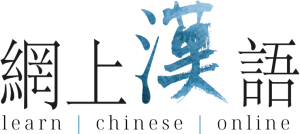Grammar
就是
We have already seen the 就 jiù in lesson 4 of level 2 with the meaning of "then" and, used with the 了 le, to indicate that an action is coming sooner or earlier than expected.
Example:
她去,我就不去。
(If) she goes so I'm not going.
你就来了。
Here you are already!
Used with 是 shì the word (就是) takes on the meaning "yes / absolutely / exactly ":
就是,你说的很对。
Absolutely, what you say is right.
It can also be used to insist:
保护环境就是保护我们自己。
Protecting the environment is precisely protecting oneself.
Express the percentage
We have seen in lesson 6 of level 1 the character 分 fēn with mainly the meaning of "minute" but also with the meaning of "divide, part or subdivision ". In this sequence, we see the character 之 zhī as the ancient equivalent of the possessive particle 的.
So if we write 百分之一 it literally means "one of 100 division", so 1%.
Other examples:
四分之三
three quarters
三分之一
a third
The verbal suffix 住
In lesson 4 of level 1, we saw the verb 住 zhù with the meaning of "to live / to reside". For example: 我住在北京。 I live in Beijing.
Placed after an action verb, 住 zhù can mean:
- solidity and firmness: 拿住 názhù "hold fast" / 留住 liúzhù "to retain"
- stopping or slowing down: 站住! Zhànzhù ! "Stop!"
来 as verbal suffix
In lesson 6 of level 1, we saw the verb 来 lái with the meaning of "coming" and its use as simple directional.
The other uses of 来 lái are numerous. In this lesson, we will see it as a verbal suffix indicating the idea of consequence. For example, used with 带 dài "take, take away", the compound word 带来 dàilái means "to bring, to lead, to cause":
塑料给环境带来了严重的污染。 Plastic has caused a severe pollution of the environment.
减少污染才能为我们带来美好的生活。 Only the reduction of pollution can bring us a happy life.
中 as suffix
In lesson 4 of level 1, we saw the character 中 zhōng "middle" in the word 中国 zhōngguó "China".
Placed after a word of time or a verb, it means "during":
秋天是一年中最好的季节。 "Autumn is the best season of the year." (一年中 => "during a year")
森林在经济发展中也有它的重要作用。 The forest also has an important role (effect) in the course of economic development.
Introduction of the indirect object with 提供
When we want to use 提供 "to supply / to provide" with an indirect object, this one is introduced with 给 gěi just after 提供:
桌子、椅子、铅笔、报纸,都是森林提供给我们的。 The tables, chairs, pencils, papers, are all provided to us by the forest.
Background Colour
Font Face
Font Kerning
Font Size
Image Visibility
Letter Spacing
Line Height
Link Highlight
Paragraph Width
Text Alignment
Text Colour
